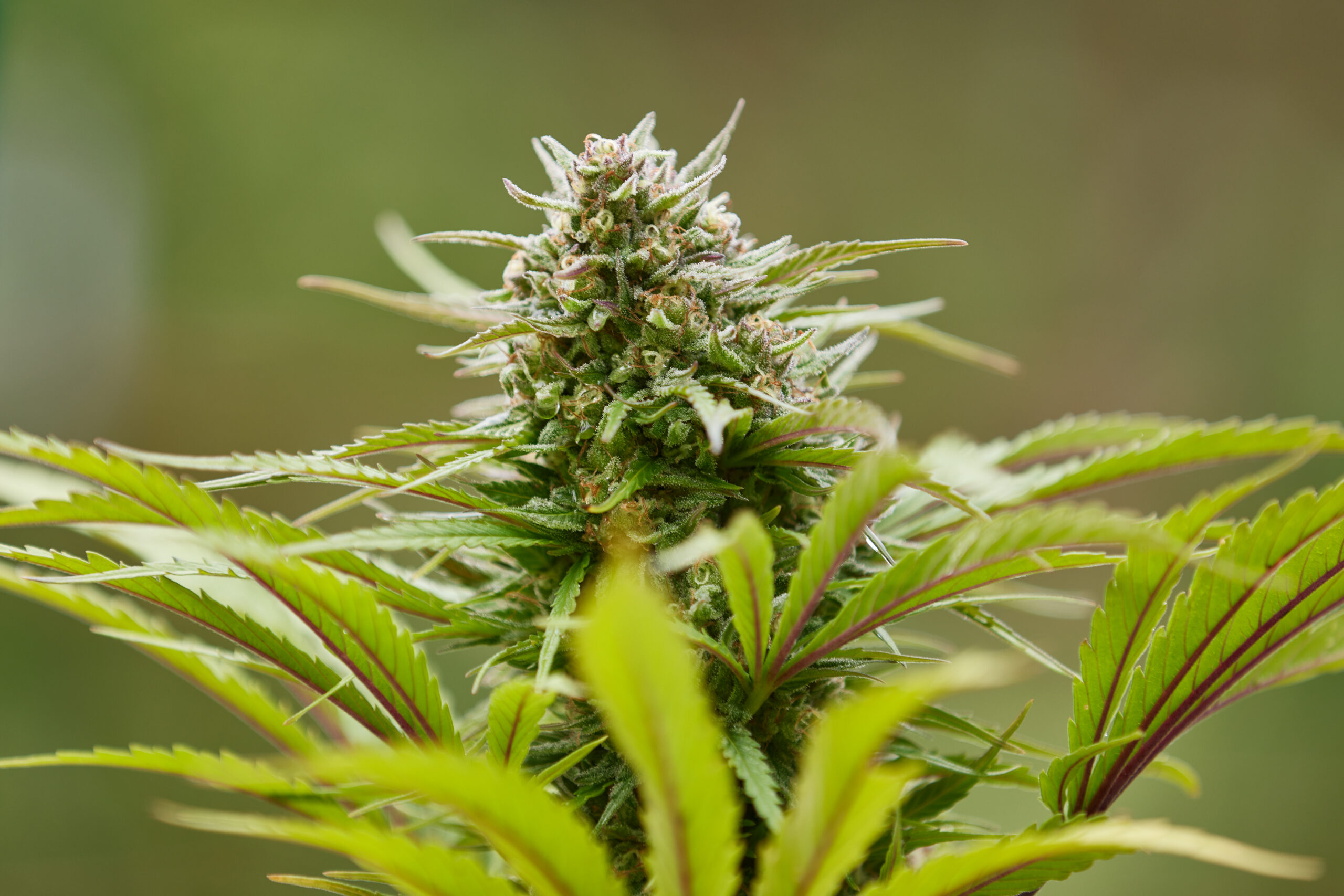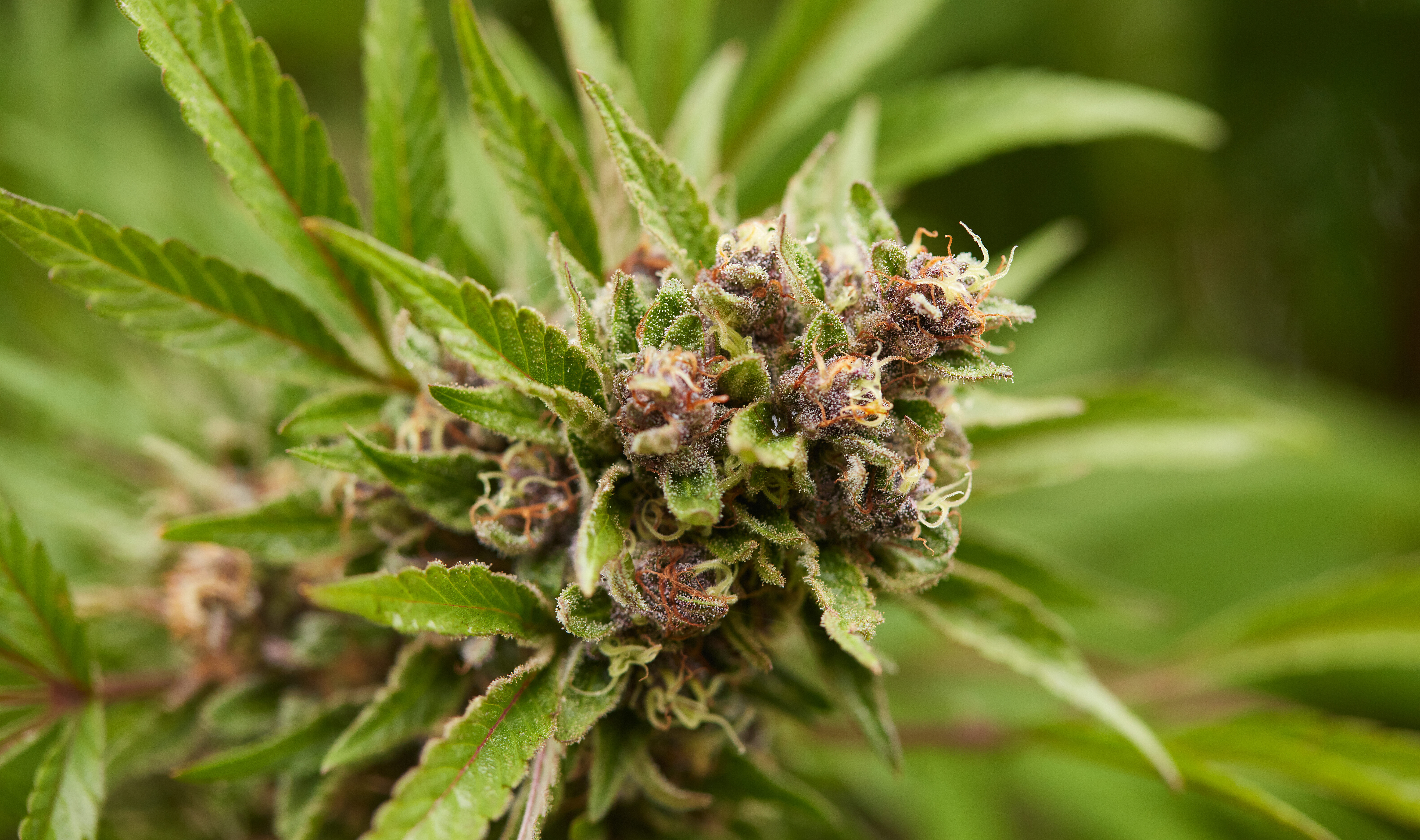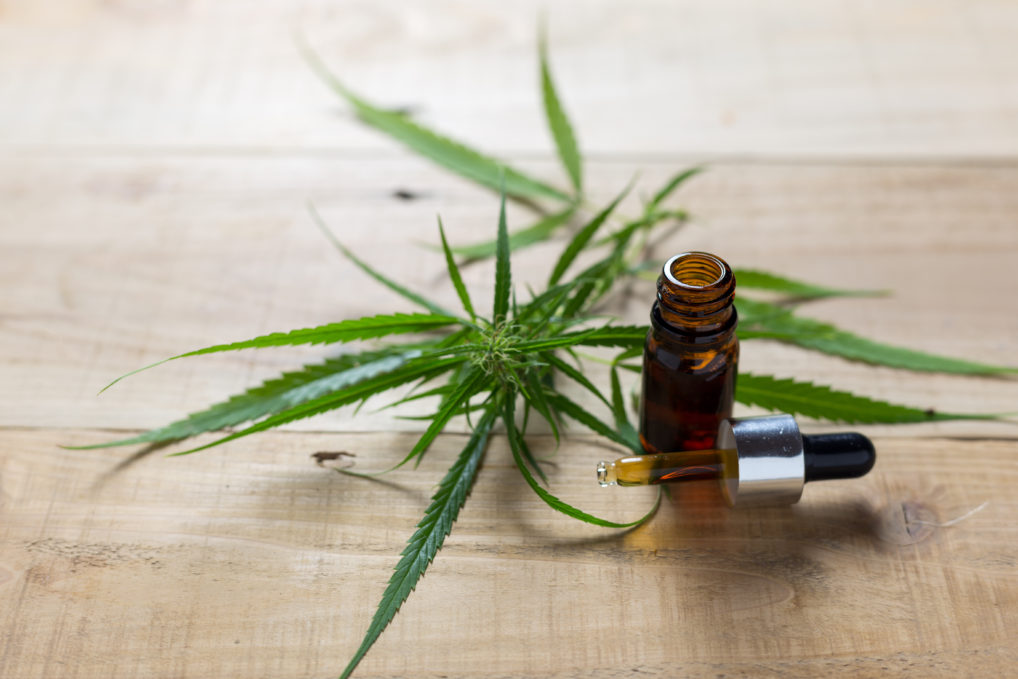Cannabigerol (CBG) was first discovered by Yehiel Gaoni and Raphael Mechoulam in 1964. It's one of over 100 cannabinoids present in cannabis and reportedly has many potential therapeutic benefits, including antibacterial, antimicrobial, and anti-inflammatory qualities. Interest in this unique minor cannabinoid is rising due to its non-intoxicating properties and pharmacological potential. CBG sourced from hemp plants is legal in most US states as it contains less than 0.3% THC.
Learn how CBG interacts with the human body, its benefits and risks, and why it tends to be more expensive than other common cannabinoids.
CBG and the entourage effect
Along with THC, CBD, and CBG, the cannabis plant contains over 100 cannabinoids, as well as other compounds such as terpenes, flavonoids, and more. When consumed in isolation, each of these components has unique properties and potential therapeutic benefits. When combined, however, direct or indirect interactions can modify the overall clinical effect. This interaction is known as the “entourage effect.”
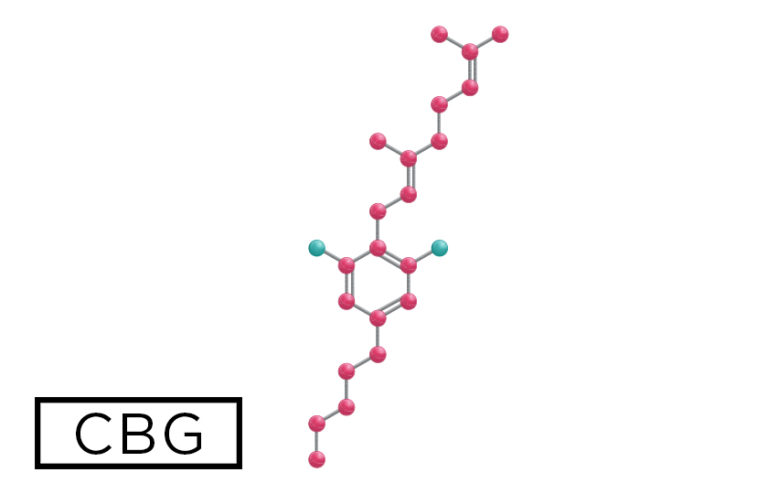 Photo by: Weedmaps
Photo by: WeedmapsImage lightbox

One of the reported benefits of the entourage effect is that cannabinoids like CBD and CBG may help “tame” the intoxicating effects of THC, potentially increasing its therapeutic abilities without producing a stronger psychoactive high. Other research, however, shows that a combination of plant compounds may make for a stronger psychoactive experience than THC alone.
In any case, full-spectrum, defined as products containing some amount of THC, and broad-spectrum, referring to products that are typically devoid of any THC content, might offer different or more comprehensive benefits compared to products with a single, isolated compound. This is certainly the case for CBG.
CBG health benefits
As medical interest in CBG grows, more clinical trials will help nail down the potential benefits of this cannabinoid and how it interacts with the human endocannabinoid system. In the meantime, early research suggests there may be some benefits to the compound, including:
Anti-inflammatory
CBG has been shown to possess anti-inflammatory properties, which might benefit conditions like inflammatory bowel disease. One 2013 study showed that CBG was effective for inflammatory bowel disease in mice, while another 2007 study showed that CBG might effectively treat the inflammation caused by psoriasis.
Because of its impact on cortisol, a hormone that regulates a wide range of processes in the body, another paper from 2017 suggests that CBG might be effective in treating general inflammatory diseases. Much more research is needed, but these are all promising signs.
Anti-anxiety
Some animal studies suggest that CBG may have potential antidepressant and anti-anxiety effects. One 2022 study reported that “Most respondents reported greater efficacy of CBG-predominant cannabis over conventional pharmacotherapy.” Although more research is needed, there are many anecdotal reports of the anti-anxiety benefits of CBG products.
Appetite stimulant
 Photo by: Gina Coleman/Weedmaps
Photo by: Gina Coleman/WeedmapsImage lightbox

CBG may act as an appetite stimulant, potentially helping those with conditions like cachexia (wasting syndrome) or anorexia. Two studies suggest that CBG could be a novel way of stimulating appetite for patients undergoing chemotherapy, along with treating “other disorders of eating and body weight regulation.”
Antibacterial
CBG has demonstrated antibacterial effects, particularly against drug-resistant bacterial strains. Specifically, CBG appears to have great promise against methicillin-resistant Staphylococcus aureus (MRSA), a type of staph infection highly resistant to treatment. A 2008 study also showed that other cannabinoids, like THC, CBD, CBN, and CBC, could also be effective in fighting this hard-to-treat infection.
Anti-cancer
Early research indicates that CBG might have potential anti-cancer properties, inhibiting the growth of certain cancer cells. Two studies show that it may slow tumor growth in certain types of colon and breast cancer, and it might be useful in fighting several different forms of human cancer.
Bladder dysfunction
A study on animal models found that CBG could reduce bladder contractions, suggesting its potential use in managing overactive bladder symptoms. By reducing the involuntary contractions of the bladder, CBG could help decrease urgency and incontinence episodes.
Neuroprotectant
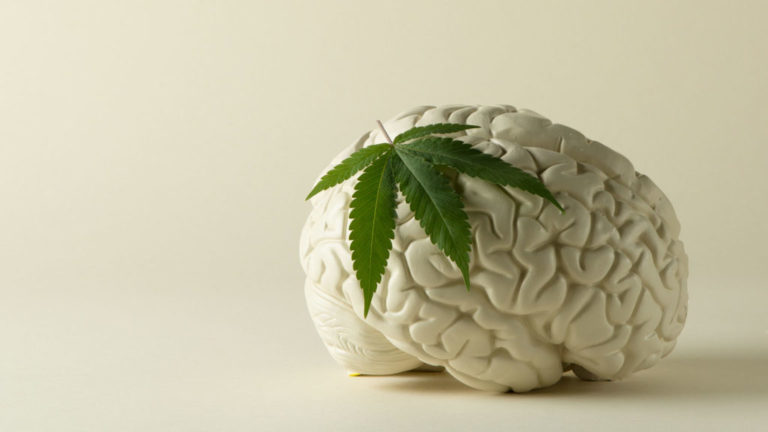 Photo by: Gina Coleman/Weedmaps
Photo by: Gina Coleman/WeedmapsImage lightbox

Some in-vitro studies suggest that CBG might have neuroprotective properties, which could benefit conditions like Huntington's disease. For example, a 2015 study in mice showed that CBG might be useful for treating Huntington's and other neurodegenerative diseases, while another study from 2018 demonstrates CBG's potential to reduce inflammation and oxidative stress in the brain. Another study from 2020 demonstrated its general potential as a neuroprotectant.
Glaucoma treatment
Glaucoma patients have long used THC for its ability to relieve ocular pressure. In a study from 1990, cannabigerol was also shown to be effective in reducing pressure in the eye and could provide a non-intoxicating alternative for treating glaucoma.
CBG risks
As with any substance, there may be potential risks or concerns associated with CBG, including:
Limited long-term data
One of the primary risks of CBG is the lack of comprehensive research on its long-term effects. As such, there may be unforeseen side effects or interactions that have not yet been documented.
Drowsiness
 Photo by: Gina Coleman/Weedmaps
Photo by: Gina Coleman/WeedmapsImage lightbox

While CBG is not thought to be as sedating or psychoactive as THC, some consumers report feelings of drowsiness or lethargy. This can be a concern if you plan on driving or operating heavy machinery.
Drug interactions
Much like CBD, CBG may interfere with your body's ability to metabolize certain medications. This could lead to an increase or decrease in the levels of these drugs in your bloodstream. The specific interactions between CBG and medications need to be further researched.
Gastrointestinal issues
High doses of any cannabinoid can sometimes lead to gastrointestinal problems like diarrhea or upset stomach. It's not clear how common this is with CBG, but it's a potential side effect to be aware of.
CBG vs CBD: What's the difference?
While both are non-intoxicating cannabinoids, CBG is different from CBD in several critical ways.
- Molecular structure: CBD and CBG have different molecular structures. Molecular structure refers to the number and arrangement of hydrogen, carbon, and oxygen atoms. Dissimilar molecular structures mean CBD and CBG have different three-dimensional shapes, so they bind with the body's cannabinoid receptors differently. A cannabinoid's molecular structure also helps determine the bioavailability of the cannabinoid and its degree of solubility in water.
- Pharmacology: CBD and CBG activate receptors differently. CBD appears to exert its anti-nausea effects through its affinity for the 5-HT1A receptor, acting as an agonist (activator). CBG, on the other hand, behaves as an antagonist (blocker) at the 5-HT1A receptor.
- Plant concentrations: Although growers are now cultivating strains with higher CBG content, you can typically find CBG in concentrations of less than 1% in most cannabis strains. CBD is more abundant in hemp plants and many cannabis strains. This prevalence has led to its dominant position in the market and research space.
- Market availability: Thanks to the longer history of research and more widespread recognition, CBD products dominate the cannabinoid market. By contrast, CBG products have been gaining traction but are less prevalent and can be more expensive due to the challenges in extraction and lower natural concentrations in the plant.
CBG vs THC: What's the difference?
CBG and THC are both cannabinoids found in the cannabis plant, but they have distinct differences in terms of their effects, production, and potential therapeutic uses.
- Concentration in the plant: Often referred to as the "stem cell" or "mother" cannabinoid, CBGA (the acidic form of CBG also known as cannabigerolic acid) is a precursor to the primary cannabinoid acids, including THCA (the precursor to THC), CBDA, and CBCA. As the cannabis plant matures, CBGA is converted into these other cannabinoids, so mature plants typically have lower concentrations of CBG, and CBGA converts into THCA. Through decarboxylation (often via heat), THCA then converts to THC.
- Effects: CBG is non-intoxicating, meaning it doesn't produce the "high" or euphoric sensation associated with cannabis use. THC is the primary intoxicating component of cannabis, responsible for producing the characteristic "high" when consumed.
- Chemical structure: Both CBG and THC have unique chemical structures, which account for their different interactions with the endocannabinoid system in the body. This results in different effects and therapeutic potential.
- Potential therapeutic effects: Preliminary research suggests CBG may have potential anti-inflammatory, neuroprotective, mood-enhancing, analgesic, and antibacterial properties, benefits for glaucoma, and more. It might also act as an appetite stimulant. THC has well-documented therapeutic effects, including pain relief, appetite stimulation, and relief from nausea and vomiting, among others.
- Legal status: In many jurisdictions, CBG derived from hemp — cannabis plants containing less than 0.3% THC — is legal. However, laws vary widely by country and region. The legal status of THC varies worldwide. In some jurisdictions, THC is illegal for recreational use but permitted for medical use. In others, it's either fully legal or prohibited in all forms.
- Potential side effects: While research is still early, CBG appears to have minimal reported side effects. By contrast, THC can lead to intoxication, altered perception, increased heart rate, dry mouth, red eyes, and, when overconsumed, anxiety or paranoia.
Hemp vs cannabis-derived CBG
The legal definition of hemp is a cannabis plant that contains 0.3% THC or less. Hemp is non-intoxicating and legal for industrial and commercial uses in many jurisdictions. By contrast, regular cannabis contains more than 0.3% THC and often at much higher concentrations.
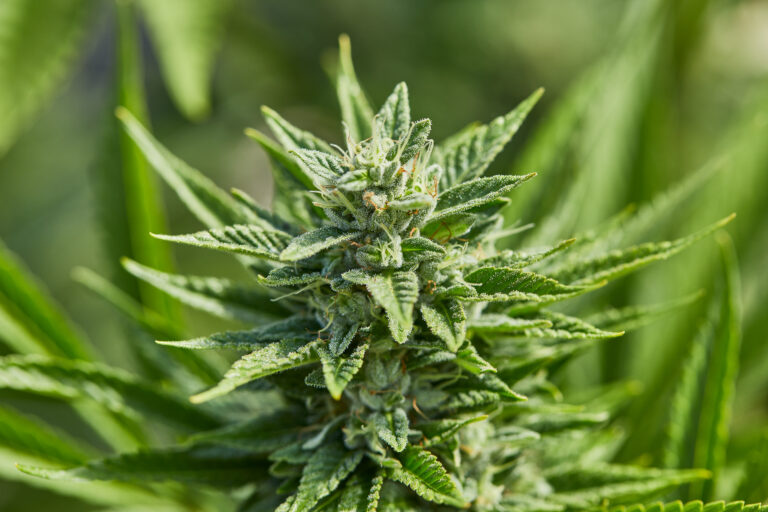 Photo by: Gina Coleman/Weedmaps
Photo by: Gina Coleman/WeedmapsImage lightbox

Both hemp and cannabis can produce CBG, though the actual concentration can vary significantly between strains and growth conditions. Some strains have been bred specifically to produce higher levels of CBG and make extraction more efficient. You can use both hemp and cannabis-derived CBG for a variety of potential therapeutic applications since the benefits of CBG aren't necessarily contingent upon the source of the cannabinoid. However, you may choose hemp-derived CBG products if you want to avoid THC or if you live in regions where only hemp-derived products are legally accessible.
Cannabis strains high in CBG
Cannabis cultivars that are high in CBG are referred to as Type IV cannabis. Type I is THC-dominant, Type II is a mixed-ratio of CBD:THC, and Type III is CBD-dominant. CBG-dominant hemp is also found in Europe, particularly France, and Industrial hemp tends to have higher concentrations of CBG than THC-rich cultivars.
- Stem Cell: One of the first commercially available CBG-dominant cultivars was Stem Cell — it grows vigorously and produces masses of large flowers.
- White CBG: Another popular cultivar producing up to 20% CBG concentration is White CBG.
- Panakeia: Specially developed for its high CBG content (18%), it contains no THC.
- Jack Frost CBG: Produced by crossing several high-CBG strains, Jack Frost CBG often has a CBG content of 15% or higher.
- CBG Black: Recognized for its dark, almost black leaves and high CBG content, CBG Black is another favorite among CBG enthusiasts.
- CBG Bliss: A strain bred by Oregon CBD, CBG Bliss is known for its potent CBG levels and is often used in extraction for CBG products.
- Super Glue CBG: Another strain with high CBG content, Super Glue CBG is known for its sticky resin.
Bottom line
Initial research on CBG suggests that it may help tame inflammation, relieve symptoms of glaucoma, stimulate appetite, balance mood, fight hard-to-treat bacterial infections, and exert anti-cancer effects. That said, the research on CBG is still very limited, and there is much more to uncover about this exciting cannabinoid.
FAQ
Is CBG legal?
It depends on your country or region. In the US, hemp-derived CBG is generally considered legal thanks to the 2018 Farm Bill, which federally legalized the production of hemp and the cannabinoids extracted from it so long as the THC content is below 0.3% on a dry weight basis.
However, cannabis-derived cannabinoids, including CBG, may still be illegal under federal law, as cannabis remains a Schedule I substance under the Controlled Substances Act. In states where cannabis is legal for medical or recreational purposes, CBG is typically legal, but with certain specifications. In other countries, CBG and other cannabinoids may be entirely illegal, which is why it's essential to consult local or national regulations when considering CBG products.
How much does CBG cost?
The cost of CBG products varies based on several factors, including purity, form, source, production methods, regulations, and taxes, and the range can be wide. A CBG tincture, for example, can cost anywhere from $50 to $100 for a 30-milliliter bottle.
Why is CBG so expensive?
CBG products are generally pricier than CBD products due to the cannabinoid's lower natural concentration in cannabis strains and the challenges associated with CBG extraction. However, prices may shift as extraction technology improves and cannabis strains with higher CBG content are developed.
Does CBG get you high?
No, CBG is a non-intoxicating cannabinoid, meaning it does not produce the "high" or euphoric feeling associated with THC, the primary intoxicating compound in cannabis. Similar to CBD, preliminary research and anecdotal reports indicate that CBG offers potential therapeutic benefits without causing intoxication.
Is CBG psychoactive?
Technically, CBG might be psychoactive if it provides anti-anxiety effects, but CBG is not considered psychoactive or intoxicating in the same way that THC is.
This article was reviewed by Bonni Goldstein, MD, a physician specializing in cannabis medicine in Los Angeles, California, owner and medical director of CannaCenters, and medical advisor to Weedmaps.com.

